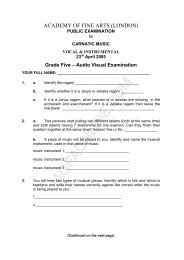
In later times this word is no doubt always, or almost always, used to designate the whole of a building in which several or many Bhikkhus resided.

Pariyanta is used here in the same sense as in the 22nd Nissaggiya.

s Buddhaghosa says here, Asana pariyanto bhattaggadisu samgha-navak-asanam vukkati, svassa databbo. Pakkosanatthaya karonto, aham te savakaniyam karomi, ehi maya saddhim vinaya-dharanam sammukhibhavam gakkhama ti : evam karoti. Palibodhatthaya hi karonto, aham ayasmantam imasmim vatthusmim savakaniyam karomi, imamha avasa ekapadam pi ma pakkami yava na tam adhikaranam vupasantam hotiti evam karoti. The Samanta Pasadika has here the following note on savakaniyam, which should be compared with the shorter note on the same word given above, I, 1, 5: Na savakaniyam katabban ti palibodhatthaya pakkosanatthaya va savakaniyam na katabbam. The etymology of the word is unknown to us. Here we mentioned the Shop Number : 1281114s Ration Card’s (WAP, JAP, RAP, YAP) Numbers with Card Member Name. Compare the use of onogesi at Dipavamsa XIII, 29. Here below you can find the Ration Card Details for Anantapur (District), Dharmavaram (Mandal) & Shop No 1281114. Whichever belonging to that company of Bhikkhus shall be the worst seat?, or the worst sleeping-place, or the worst room4, that shall be given to that Bhikkhu, and there 1 Onoganam, which the Samanta Pasadika explains by visagganam. 'A Bhikkhu who has been placed on probation ought not, O Bhikkhus, to walk in front of, or to sit down in front of, a regular Bhikkhu. He ought not to confer the Upasa mpada (&c., as above, in I, 1, 5, down to the end).

"Therefore, O Bhikkhus, do I make known to you a rule of conduct for Bhikkhus who have been placed on probation, according to which they ought to conduct themselves aright. according to their seniority (that is to say), the Uposatha ceremony, the Pavarana ceremony, the share in robes for the rainy season, in things dedicated to the Samgha", and in food.


 0 kommentar(er)
0 kommentar(er)
